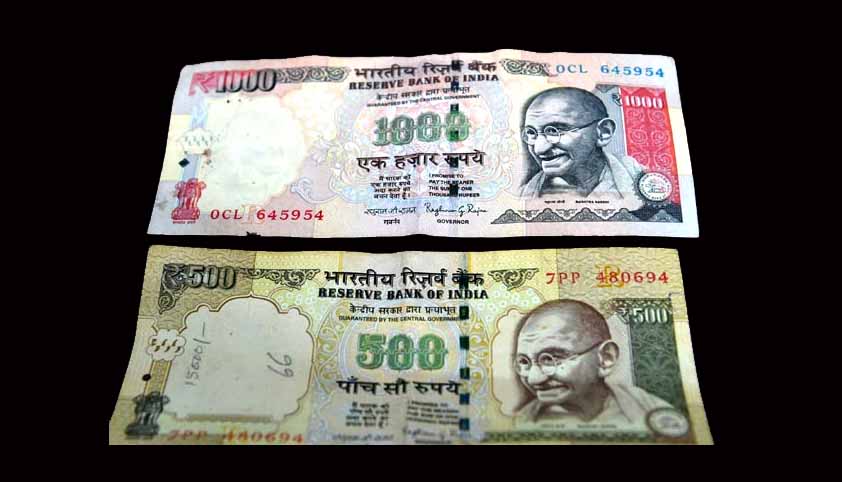Demonetization Is Both Revolutionary And Responsibility
Dr.V.V.L.N. Sastry
9 Dec 2016 10:47 PM IST

Since independence, India has witnessed many revolutions inside the country. But, on the 8thNovember 2016, Indians were stunned by the demonetization revolution brought about by Prime Minister Mr. Narendra Modi, a revolution which is considered as a huge surgical attack on black money, both ‘systematic and systemic’ in electoral politics, propped up by corrupt businessmen, politicians and executives. By invalidating the highest currency in terms of value, the root of the majorproblems ofcorruption, black money and fake currency has been put to rest.It is also an act of crackdown on the country’s booming under-regulated and virtually untaxed grassroots economy. This one act of Modi will be a driver to get millions of Indians onto the country’s official economic grid, many for the first time. The crackdown has the feel of ‘sweeping in scope and extreme in measures’ as terrorism, illegal drug sales, the black markets, counterfeiting, and/ or the method of choice for those seeking and paying bribes have come to a halt. Petty corruption which is rampant in India has also hit a speed breaker for the time being.
According to the recent Global Corruption Barometer, the percentage of those who reported paying a bribe in the past year was 9% in China as compared to 54% in India. Corruption in China is concentrated among the political elites, involving exchanges of power for large sums of money. Conversely, India has a pervasive problem of petty corruption.
As for demonetization, itself, there is no dearth of skeptics, but the fact is that it is bound to make a dent in the parallel economy created by fake currency,terror and drug trade. Data reveals that the Rs.500 notes had contributed to 47.8 per cent and Rs. 1000 notes to 38.6 per cent of the total currency value in circulation, as of March, 2016. Critics state that India’s economy is powered by the cash centric informal market, which is responsible for roughly 40% of GDP and 90% of employment. Up until this campaign, cash was not only king in India but was statistically the only significant player accounting for upwards of 95% of all monetary transactions. India is a country where only 60% of people even have bank accounts. By turning off the engines which drove the informal economy, India hopes that more people can be brought into the fold by using trackable and taxable digital financing vehicles, like debit cards and e-wallets.
However, there will be multiple effects of the demonetization policy on the economy of the country. Whether the outcome of the demonetization will provide benefit to the common peopleremains to be seen in the months to come.The purge on 500 and 1,000 rupee notes may successfully push more Indians to get bank accounts, use digital methods to make purchases and to engage in commercial exchanges that can be more easily tracked and taxed. However, there is an uncertainty as to how far it will be successful in curbing corruption.
The black money has inflated home prices to the levels beyond the reach of the ordinary people.Ostentatious consumption will probably take a huge hit. Also, badly hit will be the political parties that have undeclared reserves of cash donations and which have been hoarded to be used to fight the fast-approaching assembly elections.With Rs. 500 and Rs. 2000 notes in circulation, black money may returnwith timeunless the problem of generation is dealt with. Gresham’s Law states that “good and bad coin cannot circulate together” and the current demonetization drive must prove that henceforth such a situation doesn’t arise. Otherwise, the benefits of demonetization will be short lived.
Demonetization policy is a classic case of good idea to flush all the illegal money out of the system.
It is a fact that this demonetization movement will be a boon for Indian banks, with increased deposits and more people getting into the banking system, as the cash economy retracts throughout the country. This aspect will put forward the greatest responsibility that the banking system, governments and politicians should assume going forward. According to the RBI, amount of deposits grew by nearly Rs. 6 trillion following the currency ban on November 8th, 2016. This surge in deposits has led to a reduction in lending rates offered by certain banks since savings account deposits represent a cheap source of financing for banks. However, it would be unwise to view this as beneficial for the economy since this represents a profound disequilibrium in the market. Bank deposits have increased simply because the government has made it impossible to hold cash. The public does not have a choice in decidingin what form it wishes to hold its wealth.
By squeezing the public, if the banks resort to careless lending by putting the money of the depositors at stake, or if the politicians resort to freebies to secure their vote bankor once the withdrawal limits have been removed, the economy lurches back into the same old black economic equilibrium andthen there is no telling what the possible impacts on financial markets might be and there is no reason to believe that the outcome will be positive. Hence, demonetization must be nurtured by the administration with great responsibility and accountability to the public at large.
 Dr.V.V.L.N. Sastry is a Legal Counsel & Economist
Dr.V.V.L.N. Sastry is a Legal Counsel & Economist
[The opinions expressed in this article are the personal opinions of the author. The facts and opinions appearing in the article do not reflect the views of LiveLaw and LiveLaw does not assume any responsibility or liability for the same]
This article has been made possible because of financial support from Independent and Public-Spirited Media Foundation.


